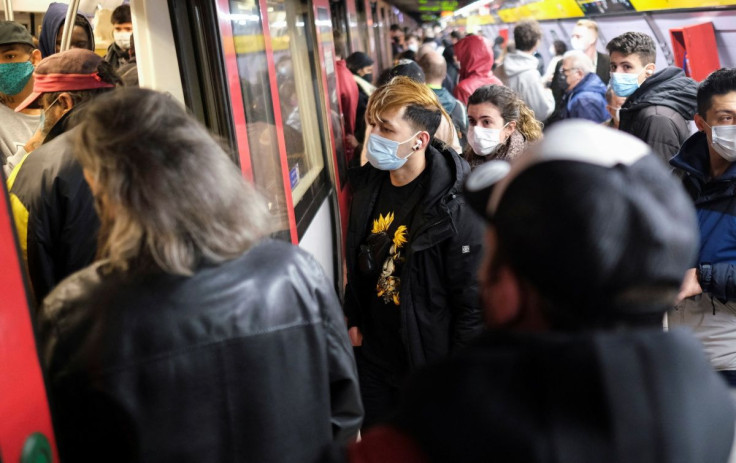Does Time Slow Down On A Crowded Train? It's Not You, Probably
KEY POINTS
- Virtual reality was used to create a life-like ride onboard a New York City subway train
- Crowded trips on average made the duration of the ride feel 10% longer
- Unpleasant trips felt 20% longer compared to pleasant ones
The prospect of traveling in a train during rush hour is off-putting for everyone. Now, a new study has found time does seem to pass slowly on a crowded train.
Researchers from Cornell University found scientific evidence the perception of time becomes distorted on a crowded train. The findings of the study were published in the journal Virtual Reality.
"It's a new way of thinking about social crowding, showing that it changes how we perceive time," lead author Saeedeh Sadeghi, said, reported TechXplore. "Crowding creates stressful feelings, and that makes a trip feel longer."
Crowded trips on average made the duration of the ride feel 10% longer for the participants compared to the uncongested ones, according to the study results.
Previous studies did recognize that factors, including emotional state, heart rate, and the complexity of the situation, played a part in one's experience of time. However, these studies were conducted in lab settings with the use of simple tasks and stimuli.
In this particular study, virtual reality was used in a novel way to allow participants to experience a life-like ride onboard a New York City subway train. The experience was completely immersive with passenger avatars in VR mimicking people on a real train ride like seated and standing passengers changing positions, looking at phones, or reading books and magazines.
The ride started with the customary announcement "stand clear of the closing doors, please." Next, the bell rang to signal the closing of doors, accompanied by the sound of the subway gaining speed. At the end of the trip, the virtual train came to a halt along with the sound of another bell.
More than 40 study participants took five simulated subway trips each, with varying duration of 60, 70, or 80 seconds, as well as differing crowding levels. The crowd was in the range of 35 to 175 passengers.
It was found in the study that the displeasure experienced during trips had a bearing on the degree of distortion of time. Unpleasant trips felt 20% longer compared to pleasant ones. This was due to the revving up of the emotional defense systems with people feeling their personal space is being violated, the researchers opined.
"This study highlights how our everyday experience of people, and our subjective emotions about them, dramatically warps our sense of time," co-author Adam K. Anderson, professor in the Department of Psychology, said, as per the outlet. "Time is more than what the clock says, it is how we feel or value it as a resource."
With the backdrop of the pandemic, the stress from crowding will only increase, which will play a role in perceived time travel, the researchers said.

© Copyright IBTimes 2025. All rights reserved.





















